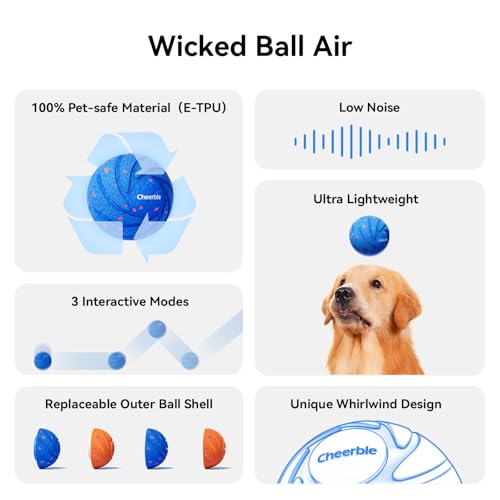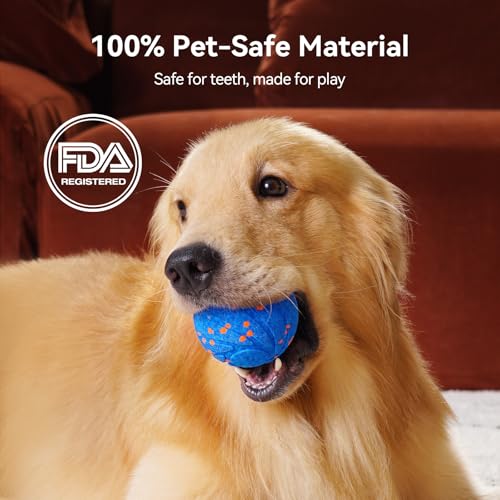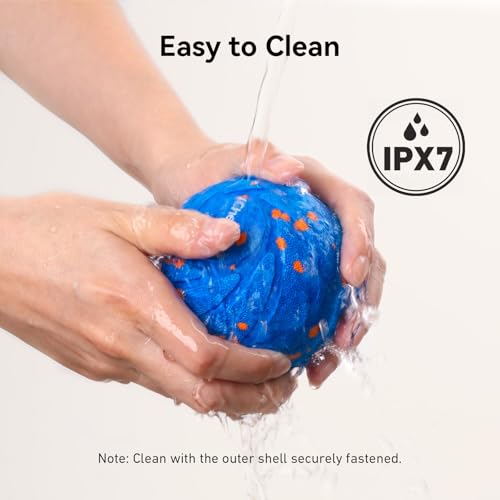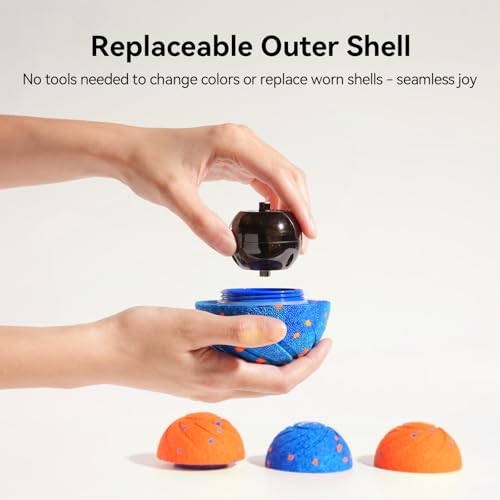




If you’re a dog owner who’s ever caught your beloved pet indulging in the unsavoury habit of eating poop, you’re not alone. This behaviour, known as coprophagia, is surprisingly common and can be quite distressing. It’s not just an issue of hygiene and bad breath; it can also indicate underlying nutritional deficiencies or health problems. I’ve been through this with my own dog, and after extensive research and consultations with veterinarians, I discovered that diet plays a crucial role in curbing this behaviour.
When I first noticed my dog’s coprophagia, I was both horrified and puzzled. My initial reaction was to scold him and keep a closer eye on his outdoor activities, but this did little to solve the problem. It was only after delving deeper into the issue that I learned how important proper nutrition is in addressing coprophagia. Certain ingredients and nutrients can make a significant difference, helping to reduce or even eliminate this behaviour.
In this article, I’ll share my journey to finding the best dog food for dogs who eat poop. I’ll highlight specific ingredients to look for, explain why they matter, and review some top dog food brands that have worked wonders for my dog. By making informed choices about your dog’s diet, you can help ensure they stay healthy and happy, and hopefully put an end to their poop-eating habits.
So, let’s dive into the nutritional strategies and food options that can help tackle coprophagia. Whether you’re dealing with this issue for the first time or looking for new solutions, my goal is to provide you with practical advice and recommendations based on real-life experiences and expert insights.
Understanding Why Dogs Eat Poop
I’ve always been curious about why some dogs have the unsettling habit of eating poop. It’s a behaviour known as coprophagia, and it can be quite distressing to witness. Understanding the reasons behind this can help us address it more effectively and ensure our pets stay healthy and happy.
There are several reasons why dogs might engage in this behaviour. It could be due to nutritional deficiencies, behavioural issues, or simply a natural instinct that dates back to their ancestral roots. By delving deeper into these reasons, we can better understand our furry friends and work towards curbing this habit.
Possible Reasons for Coprophagia
- Nutritional Deficiencies: One of the primary reasons dogs might eat poop is due to a lack of certain nutrients in their diet. If their food doesn’t provide all the necessary vitamins and minerals, they might seek out other sources, including faeces, to fulfil those needs.
- Behavioural Factors: Dogs can also eat poop as a result of behavioural issues. This can include boredom, anxiety, or even as a learned behaviour from other dogs. Providing mental and physical stimulation can help mitigate this.
- Instinctual Behaviour: Historically, wild dogs and wolves ate faeces to keep their dens clean and to protect their pack from parasites. This instinct can sometimes carry over to domesticated dogs, despite it not being necessary in a modern household.
- Attention Seeking: Sometimes, dogs might eat poop simply to get a reaction from their owners. If they notice that this behaviour garners a lot of attention, even if it’s negative, they might continue doing it.
- Medical Conditions: Certain medical conditions, such as malabsorption syndromes or thyroid issues, can lead to coprophagia. If you suspect a medical issue, it’s essential to consult a veterinarian.
By identifying the underlying cause of why a dog might eat poop, we can take appropriate steps to address the issue. Whether it’s adjusting their diet, providing more enrichment, or seeking medical advice, understanding the root of the behaviour is crucial. It’s all about ensuring our pets’ well-being and maintaining a healthy, happy environment for them.
Essential Nutrients to Consider in Dog Food
When selecting the ideal dog food, it’s crucial to focus on specific nutrients that contribute to your dog’s overall health and well-being. Ensuring that your pet receives a balanced diet rich in these elements can prevent various health issues and promote a longer, happier life.
In my quest to find the best food for my dog, I’ve learned that understanding what goes into their meals is essential. Here are the key nutrients I look for when choosing dog food:
Vital Nutrients for Your Dog’s Diet
-
Protein: Dogs require a substantial amount of high-quality protein to maintain muscle mass, support growth, and repair tissues. Animal-based proteins like chicken, beef, and fish are preferable as they provide essential amino acids.
-
Fats: Healthy fats are a crucial energy source and support various bodily functions, including brain health and a shiny coat. Look for sources such as fish oil, chicken fat, and flaxseed.
-
Carbohydrates: While not as critical as proteins and fats, carbohydrates provide necessary energy. Whole grains like brown rice, oats, and barley are excellent choices for sustained energy levels.
-
Vitamins: These are vital for numerous bodily functions. Ensure the dog food contains vitamins such as A, D, E, and B-complex, which support immune health, vision, and skin condition.
-
Minerals: Essential minerals like calcium, phosphorus, and potassium are necessary for bone health, muscle function, and overall metabolic processes.
-
Fibre: A diet with adequate fibre ensures proper digestion and helps prevent issues like constipation and diarrhoea. Ingredients like beet pulp, pumpkin, and sweet potatoes are great sources of fibre.
Paying attention to these nutrients ensures that my dog gets a balanced and nutritious diet. Always check the ingredient list and nutritional information on dog food packages to make informed choices. A healthy diet can prevent many behavioural and health problems, making it worth the effort to find the right food for your furry friend.
Ingredients That Help Discourage Coprophagia
As a dog owner, dealing with a pet that consumes its own or other animals’ faeces can be both frustrating and concerning. This behaviour, known as coprophagia, is not uncommon but can be mitigated by making some adjustments to their diet. Selecting the right ingredients in your dog’s food can significantly reduce this issue.
Ensuring that your dog’s food contains certain key ingredients can make a world of difference. These ingredients not only improve overall health but also specifically target the problem of coprophagia. Below, I discuss some essential components to look for in dog food to help curb this undesirable habit.
Beneficial Ingredients to Reduce Coprophagia
- Digestive Enzymes: Including digestive enzymes in your dog’s diet can enhance their digestion, making the nutrients in their food more absorbable. Poor digestion often leads to coprophagia as dogs may seek out faeces for undigested nutrients.
- Pineapple: Fresh pineapple contains bromelain, an enzyme that not only aids in digestion but also makes the faeces taste unpleasant to dogs. Adding small amounts of pineapple to their diet can be an effective deterrent.
- Probiotics: A healthy gut flora can improve digestion and overall gut health. Probiotics help maintain a balance of good bacteria in the digestive tract, reducing the likelihood of your dog eating faeces.
- High-Quality Protein: Feeding your dog high-quality protein sources ensures they receive the necessary nutrients, reducing their instinct to eat faeces. Meat, fish, and eggs are excellent sources of quality protein.
- Fibre: Adequate fibre in the diet helps with digestion and can prevent constipation. Ingredients such as pumpkin, sweet potatoes, and green beans are good fibre sources that can keep your dog’s digestive system regular.
- Brewer’s Yeast: This ingredient is rich in B-vitamins and can make the taste of faeces less appealing to dogs. Adding brewer’s yeast to your dog’s food can help deter them from engaging in coprophagia.
By incorporating these specific ingredients into your dog’s diet, you can address both the nutritional deficiencies that may lead to coprophagia and make the faeces less palatable to your pet. Always consult with your veterinarian before making significant changes to your dog’s diet to ensure these adjustments are appropriate for your dog’s specific health needs.
Best Commercial Dog Foods to Discourage Poop Eating
As a dog owner, dealing with the unpleasant habit of my dog eating poop was both frustrating and concerning. I soon realised that the quality and composition of the food I was feeding my dog could make a significant difference. By switching to certain commercial dog foods designed to address this issue, I found a noticeable improvement in my dog’s behaviour.
These specially formulated dog foods often contain ingredients that help reduce the appeal of faeces and address potential nutritional deficiencies that might be driving this behaviour. Below, I’ve outlined some of the best commercial options that have proven effective for many dog owners, including myself.
Recommended Dog Foods to Combat Poop Eating
- Wellness CORE Grain-Free Original:
This high-protein formula is rich in nutrients and free from grains, making it a solid choice for maintaining overall health and preventing dietary gaps that could lead to stool eating. The inclusion of probiotics also supports digestive health.
- Hill’s Science Diet Adult Sensitive Stomach & Skin:
Designed for dogs with digestive and skin sensitivities, this food promotes healthy digestion and nutrient absorption. By improving gut health, it can help reduce the temptation for dogs to consume their own faeces.
- Purina Pro Plan SAVOR Shredded Blend:
Combining crunchy kibble with tender, shredded pieces, this formula is highly palatable and nutrient-rich. It includes prebiotic fibre to nourish beneficial gut bacteria, supporting digestive health and reducing stool eating behaviours.
- Royal Canin Digestive Care:
Specifically crafted to support digestive health, this food ensures optimal nutrient absorption and helps manage stool quality, making it less appealing to dogs. It’s a great choice for dogs with sensitive stomachs.
- Blue Buffalo Wilderness High Protein Grain Free:
This grain-free option is packed with high-quality protein and essential nutrients. The added LifeSource Bits, a blend of antioxidants, vitamins, and minerals, supports overall health and well-being, which can curb undesirable eating habits.
By choosing a high-quality commercial dog food that addresses both nutritional needs and digestive health, I’ve been able to significantly reduce my dog’s poop eating behaviour. It’s a relief to see my dog healthier and happier, without the constant worry of this unpleasant habit.
Homemade Dog Food Recipes to Deter Poop Eating
As a dog owner, it can be incredibly frustrating and perplexing to discover that your furry friend has developed the habit of eating their own faeces. This behaviour, known as coprophagia, is not only unpleasant but can also pose health risks. To tackle this issue, I’ve found that switching to homemade dog food recipes can make a significant difference.
Homemade meals allow us to ensure our dogs are receiving high-quality, nutritious ingredients that can help deter them from this unsavoury habit. By incorporating specific nutrients and flavours, we can make their diet more satisfying and less likely to lead them to seek out alternative “snacks”.
Recipes and Ingredients to Consider
Here are a few recipes that I’ve found effective in addressing this issue:
-
Protein-Rich Turkey and Veggie Mix
- Ingredients: Ground turkey, brown rice, carrots, peas, spinach, and a splash of olive oil.
- Preparation: Cook the turkey thoroughly, then mix with cooked brown rice and steamed vegetables. Drizzle with olive oil before serving.
-
Salmon and Sweet Potato Delight
- Ingredients: Salmon fillet, sweet potatoes, green beans, and a small amount of coconut oil.
- Preparation: Bake the salmon and sweet potatoes. Combine with steamed green beans and a teaspoon of coconut oil.
-
Chicken and Quinoa Bowl
- Ingredients: Chicken breast, quinoa, broccoli, and blueberries.
- Preparation: Boil the chicken and quinoa. Mix with steamed broccoli and a handful of blueberries.
In addition to these recipes, it’s important to ensure that your dog’s diet is well-balanced. This might mean adding supplements such as probiotics or digestive enzymes, which can aid in nutrient absorption and improve gut health. Always consult your vet before making significant changes to your dog’s diet to ensure their specific needs are met.
By preparing homemade meals with these ingredients, you can offer your dog a more appealing and nutritious alternative to their undesirable behaviour. Not only will this help to discourage poop eating, but it can also contribute to their overall health and well-being.
How to Transition Your Dog to a New Diet
Changing your dog’s food can be a delicate process. It’s essential to do it gradually to avoid upsetting their digestive system. Rushing this transition can lead to issues such as diarrhoea, vomiting, or loss of appetite.
Here are some steps I follow to make the transition as smooth as possible for my dog. These guidelines ensure that my dog adjusts well to their new diet without any discomfort.
Step-by-Step Guide to Switching Your Dog’s Food
1. Start Slowly: Begin by mixing a small amount of the new food with your dog’s current food. I typically start with 75% of the old food and 25% of the new food. This gradual introduction helps my dog get used to the new taste and texture without causing digestive upset.
2. Gradually Increase the New Food: Over the next 7-10 days, I slowly increase the proportion of the new food while decreasing the old food. For instance, after a couple of days, I adjust the mix to 50% old food and 50% new food. A few days later, I move to 25% old food and 75% new food, until my dog is eating 100% new food.
3. Monitor Your Dog’s Response: Throughout the transition, I closely observe my dog’s behaviour and stool consistency. Any signs of digestive distress, such as loose stools or vomiting, indicate that I might need to slow down the process. If necessary, I revert to the previous mix ratio and give my dog more time to adjust.
4. Maintain a Consistent Feeding Schedule: I stick to my dog’s regular feeding times during the transition. Consistency helps maintain their routine and reduces stress. I ensure fresh water is always available, as changes in diet can sometimes increase their thirst.
- Day 1-3: 75% old food, 25% new food
- Day 4-6: 50% old food, 50% new food
- Day 7-9: 25% old food, 75% new food
- Day 10: 100% new food
By following these steps, I ensure my dog adapts well to their new diet, minimising any potential issues. Each dog is unique, so the transition period might vary. Patience and careful monitoring are key to a successful switch.
Additional Strategies to Discourage Your Dog from Consuming Feces
As someone who has dealt with this issue firsthand, I’ve discovered a few effective techniques to deter my dog from indulging in this unsavory habit. Here are some additional tips to complement a balanced diet:
- Regular Supervision: Keep a watchful eye on your canine companion, especially during bathroom breaks. Promptly remove any waste to prevent temptation.
- Training and Distraction: Engage your dog in mentally stimulating activities and obedience training to redirect their focus away from feces. Interactive toys or games can provide healthy distractions.
- Consistent Reinforcement: Offer praise and rewards for desired behaviors, reinforcing the notion that avoiding feces is commendable. Consistency is key in shaping their habits.
- Proper Waste Disposal: Ensure feces are promptly disposed of in a secure manner. A covered trash bin or dedicated waste disposal system can prevent access and curiosity.
- Regular Exercise: Maintain a routine of physical activity to promote overall well-being and reduce boredom, which may lead to undesirable behaviours.
Implementing these strategies alongside a nutritious diet tailored to your dog’s needs can significantly decrease the likelihood of them consuming feces. Remember, patience and persistence are crucial in modifying behavioural patterns.
Common Pitfalls When Feeding Dogs Who Consume Feces
When it comes to addressing the dietary needs of dogs with the undesirable habit of eating feces, there are several missteps to steer clear of. Through my experiences, I’ve learned to navigate these pitfalls to ensure the health and well-being of my canine companions.
One common mistake is neglecting to address potential underlying medical issues. While adjusting the diet can play a crucial role, overlooking health concerns such as parasites or digestive issues can exacerbate the problem. Consulting with a veterinarian to rule out any medical conditions is paramount before making dietary changes.
- Overlooking Nutritional Balance: A significant error is failing to maintain a balanced diet for your dog. Simply eliminating certain foods without ensuring adequate nutrition can lead to deficiencies, exacerbating the issue. It’s essential to consult with a veterinary nutritionist to formulate a balanced diet tailored to your dog’s specific needs.
- Ignoring Behavioral Factors: Another pitfall is disregarding behavioural triggers contributing to coprophagia. Stress, boredom, or lack of mental stimulation can drive dogs to consume feces. Addressing these underlying behavioural issues through enrichment activities and training is vital in conjunction with dietary adjustments.
- Rapid Diet Changes: Implementing abrupt dietary changes can unsettle your dog’s digestive system, potentially worsening their coprophagic behaviour. Gradually transitioning to a new diet allows the gastrointestinal tract to adapt more smoothly, reducing the likelihood of digestive upset.
- Failure to Supervise: Lack of supervision during walks or in the yard can enable dogs to indulge in their fecal-eating habit unnoticed. Maintaining vigilant supervision and promptly intervening to discourage this behaviour can help break the habit over time.
Frequently Asked Questions About Dogs and Coprophagia
Dogs eating poop, a behaviour known as coprophagia, can be concerning for many pet owners. Below are some frequently asked questions addressing common concerns:
1. Why do dogs eat poop?
A: Coprophagia can stem from various factors including behavioural issues, nutritional deficiencies, medical conditions, or simply out of curiosity. Dogs may also mimic the behaviour of their mother or other dogs in the household.
2. Is coprophagia harmful to my dog’s health?
A: While coprophagia itself may not always be harmful, it can pose health risks if the stool contains parasites or harmful bacteria. Additionally, ingesting poop can lead to gastrointestinal upset or nutritional imbalances.
3. How can I prevent my dog from eating poop?
A: Preventing coprophagia involves addressing the underlying cause. Ensure your dog is on a balanced diet, provide regular exercise and mental stimulation, and discourage access to stools by promptly cleaning up after your dog. Training techniques such as positive reinforcement can also help redirect this behaviour.
4. Are there any medical conditions associated with coprophagia?
A: Yes, coprophagia can sometimes indicate underlying medical issues such as malabsorption disorders, pancreatic insufficiency, or parasites. If you notice excessive or persistent coprophagia, it’s essential to consult with your veterinarian to rule out any potential health concerns.
5. Can certain dog foods help prevent coprophagia?
A: While there’s no definitive evidence that specific dog foods can entirely prevent coprophagia, ensuring your dog is on a high-quality, balanced diet can contribute to overall health and potentially reduce the likelihood of engaging in this behaviour.
6. When should I seek professional help for my dog’s coprophagia?
A: If your dog’s coprophagia is causing distress or if you’re unable to address the behaviour through training and management techniques, it’s advisable to seek guidance from a veterinarian or a professional dog trainer. They can provide personalised recommendations and assistance tailored to your dog’s specific needs.
Best Dog Food For Dogs Who Eat Poop
Features
| Model | Coprophagia chews |
| Warranty | 1 year |
| Size | 120 g (Pack of 1) |
Features
| Part Number | 1457820 |
| Model | 3039 |
| Release Date | 2013-01-29T00:00:01Z |
| Size | 14 kg (Pack of 1) |
| Language | Italian |
Features
| Part Number | 10753 |
| Model | 10753 |
| Size | 10 kg (Pack of 1) |
| Language | French |
Features
| Part Number | 436177 |
| Model | 436177 |
| Size | 11.5 kg (Pack of 1) |
| Price history for Crave Premium Dry Dog Food | |
|---|---|
|
Latest updates:
|
|
Features
| Size | 6 kg (Pack of 1) |
Features
| Part Number | 0000 |
| Model | 0000 |
| Warranty | 45 Day Money Back |
| Size | Single Pack |
| Price history for NutriPaw Probiotic Digestive Treats | |
|---|---|
|
Latest updates:
|
|
Features
| Part Number | CWQ01 |
| Model | CWQ01 |
| Warranty | 1 year manufacturer |
| Color | Blue |
| Language | English |
Q&A:
What is the best dog food for dogs who eat poop?
The best dog food for dogs who eat poop is often a high-quality, easily digestible option with balanced nutrition. Look for brands that include probiotics and digestive enzymes to promote gut health.
Why do some dogs eat poop?
There are several reasons why dogs may engage in coprophagia, including nutritional deficiencies, boredom, stress, or simply because they find it enjoyable. It’s essential to address any underlying causes and consult with a veterinarian if the behavior persists.
Should I change my dog’s diet if they’re eating poop?
Changing your dog’s diet may help if they’re eating poop due to nutritional deficiencies or digestive issues. Transition to a high-quality dog food recommended by your vet and monitor their behaviour closely.
Are there any supplements I can give my dog to deter them from eating poop?
Yes, there are supplements available that may help deter dogs from eating poop. Look for products containing ingredients like yucca schidigera extract or parsley leaf, which can make feces less appealing to dogs. However, it’s essential to consult with your vet before adding any supplements to your dog’s diet.













































